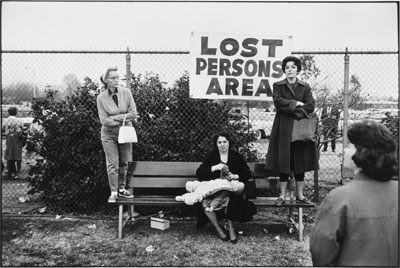The scorecard so far on child poverty
You’ve probably noticed there’s been a groundswell of awareness, dismay and outrage about child poverty lately, particularly since the Children’s Commissioner convened a panel of experts to come up with suggestions about how to solve it. This could be a great opportunity for this government to create a positive legacy by actually doing something in response to the countless statistics and stories of poverty emerging in New Zealand over the last twenty-five or thirty years.
In fact, if they wanted to, this government could actually do a lot more about child poverty than a Labour government could… they wouldn’t have to worry about a right-wing opposition lambasting them for nanny-state-taxpayer-money-wasting-social-engineering (well, except John Banks, when he turns up). They could take significant action, even expensive action, without damaging their political reputation – they may well improve it by showing a more compassionate face.
So, win-win, right? Well, let’s have a look at how they’ve responded so far to the main recommendations from the Expert Advisory group on child poverty…
“Six of the best ideas for change“ (Andrew Laxon, The New Zealand Herald 06/10/2012)
1. Free meals in schools
This was Mana policy in the last election; since then it’s become John Campbell’s hobby horse and Labour policy. Actually, I recently learned that John Key signalled support for measures like this in 2007, saying National would start organising businesses to fund meals in poor schools while in opposition, rather than waiting to be in government.
Now that they’re in government, Bill English, chair of the ministerial committee on poverty, has said that children are going hungry because they’re in “homes where there is not a strong sense of responsibility”; but that it’s the responsibility of the whole society to “do something about that”. It’s hard to know what this means; but he has signaled that he’s open to the idea of providing meals in schools. However, his press secretary hastened to add that “no new decisions have been made“. Both have been busily citing statistics to show that kids going without meals isn’t as widespread as we think, so I don’t think we should be too hopeful too soon.
2. A warrant of fitness for all rental housing
John Key hasn’t exactly embraced this wholeheartedly, but he hasn’t completely ruled it out, saying “There’s probably some limits to what Government can do but we may be able to encourage landlords to increase the quality of their property.” Bill English is arguably even more interested, though worried it will push housing prices up. Again, let’s wait and see… no ‘new decisions’ yet.
3. Every child enrolled with health and social services at birth
They’re actually doing some stuff along these lines, but only for beneficiaries. By not extending these “social obligations” to everyone, and by adding sanctions without increasing support or availability, they can’t avoid the suspicion that they’re more motivated by putting pressure on beneficiaries than helping children.
4. Universal child payment
We had something similar to this until 1991, and of course we still have universal payments to the elderly. It seems to be working, or at least helping people who need help the least – 10% of the elderly are below the poverty line, while 25% of children are (up from 4% and 10% respectively in 1986). A welfare expert who visited the country recently said that international research reveals a child payment to be one of three key factors in reducing child poverty. He insisted that it needs to be universal, because “Programmes that are targeted to the poor tend to end up being poor programmes”. John Key’s response? He dismissed the idea as “dopey“.
5. Pass on child support payments to beneficiary solo parents rather than withholding it to offset their benefit.
Bill English said that the expert group has made “a pretty strong case” for this, without necessarily committing to it; but Revenue minister Peter Dunne reckons they can’t afford it.
6. Poverty reduction targets to make politicians accountable
Paula Bennett won’t even measure child poverty, and Bill English is following suit by refusing to set targets to reduce it. He reckons it’s meaningless to measure child poverty, because he thinks we only have ‘relative’ poverty, and that ‘relative’ poverty is not real poverty. Those are a couple of huge assumptions, which I’ll discuss in my next blog a future blog, about the suggestion that there is no poverty in New Zealand.
Scorecard so far:
Policies: 0/6
Promises: 0/6
Vague and equivocal support, with a possibility of eventual action: 2.5/6
So, overall, it’s not looking good.
Particularly when we bear in mind that these are relatively conservative and non-partisan suggestions. That international welfare expert identified three key factors in reducing child poverty: increased parental employment and higher wages, along with the “dopey” universal child payment. The above recommendations are far gentler, and don’t require National to change their underlying philosophy at all – they could implement all of the above without having to actually create jobs or pay living wages.
Whatever they end up doing or not doing, this government’s response to child poverty will be one of its key legacies. It will also have a huge impact on thousands of young lives – for better or worse.


5 comments